A leaf electroscope is a simple apparatus to detect any charge on a body. It consist of two metal leaves OA and OB, free to rotate about O. Initially both are very slighty separted. When a charged object is touched to the metal knob at the top of the conduction re, charge flows from knob to the top of the conduction rod, charge flows from knob to the leaves through the conducting rod, charge flows from knob to the leaves through the conduction rod. As the leaves are now charged similarly, they start repelling each other and tet separted (deflected by certain angle).
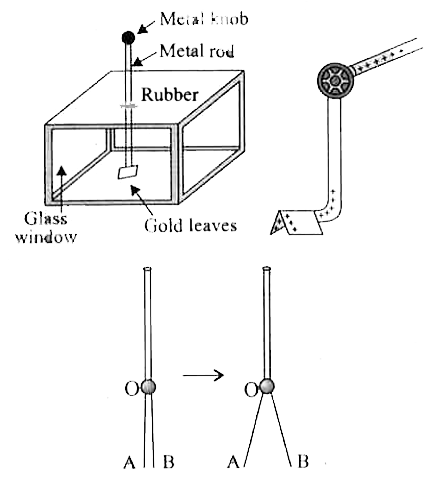
The angle of deflection in static equilibrium is an indicator of the amount of charge on the charged boy.
If we perform these steps one by one.
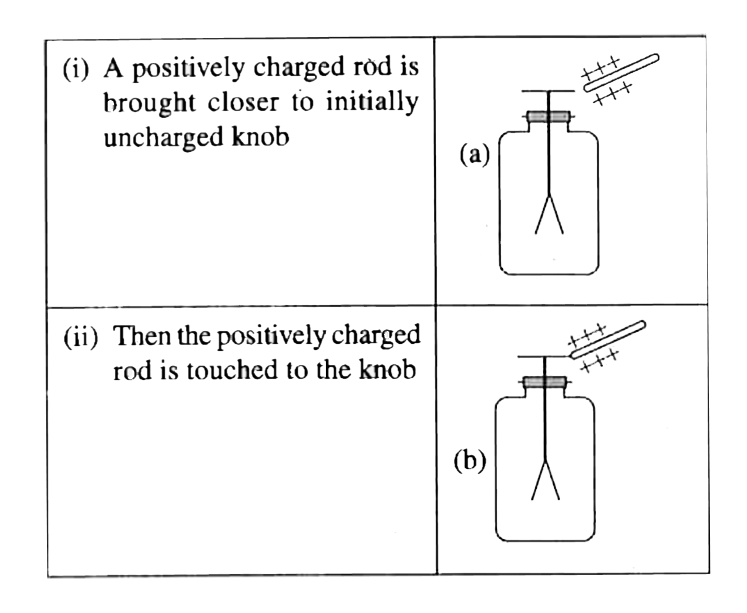
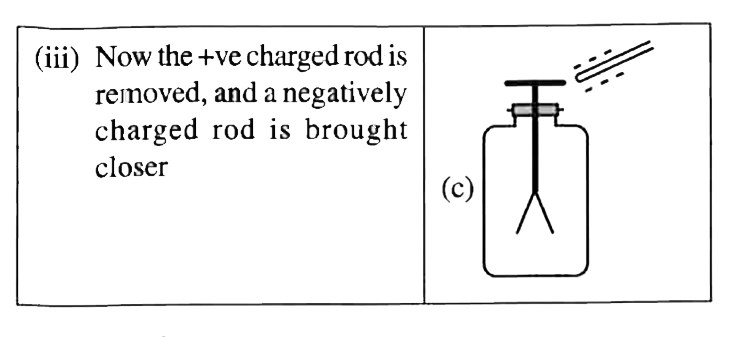
In which case, the leaves will converge (come closer), as compared to the previous state?
(i)
(i) and (ii)
only (iii)
In all cases, the leaves will diverse
The correct Answer is:C
Step by step video & image solution for A leaf electroscope is a simple apparatus to detect any charge on a body. It consist of two metal leaves OA and OB, free to rotate about O. Initially both are very slighty separted. When a charged object is touched to the metal knob at the top of the conduction re, charge flows from knob to the top of the conduction rod, charge flows from knob to the leaves through the conducting rod, charge flows from knob to the leaves through the conduction rod. As the leaves are now charged similarly, they start repelling each other and tet separted (deflected by certain angle). The angle of deflection in static equilibrium is an indicator of the amount of charge on the charged boy. If we perform these steps one by one. In which case, the leaves will converge (come closer), as compared to the previous state? by Physics experts to help you in doubts & scoring excellent marks in Class 12 exams.
Updated on:21/07/2023Topper's Solved these Questions
- COULOMB LAW AND ELECTRIC FIELDBOOK - CENGAGE PHYSICS ENGLISHCHAPTER - COULOMB LAW AND ELECTRIC FIELDEXERCISE - Single Correct Answer Type
24 Videos
- COULOMB LAW AND ELECTRIC FIELDBOOK - CENGAGE PHYSICS ENGLISHCHAPTER - COULOMB LAW AND ELECTRIC FIELDEXERCISE - Multiple Correct Answer Type
1 Videos
- COULOMB LAW AND ELECTRIC FIELDBOOK - CENGAGE PHYSICS ENGLISHCHAPTER - COULOMB LAW AND ELECTRIC FIELDEXERCISE - Multiple Correct Answers Type
2 Videos
- CENGAGE PHYSICS DPPBOOK - CENGAGE PHYSICS ENGLISHCHAPTER - CENGAGE PHYSICS DPPEXERCISE - subjective type
51 Videos
- ELECTRIC CURRENT & CIRCUITSBOOK - CENGAGE PHYSICS ENGLISHCHAPTER - ELECTRIC CURRENT & CIRCUITSEXERCISE - Kirchhoff s law and simple circuits
15 Videos
Similar Questions
A leaf electroscope is a simple apparatus to detect any charge on a body. It consist of two metal leaves OA and OB, free to rotate about O. Initially both are very slighty separted. When a charged object is touched to the metal knob at the top of the conduction re, charge flows from knob to the top of the conduction rod, charge flows from knob to the leaves through the conducting rod, charge flows from knob to the leaves through the conduction rod. As the leaves are now charged similarly, they start repelling each other and tet separted (deflected by certain angle).
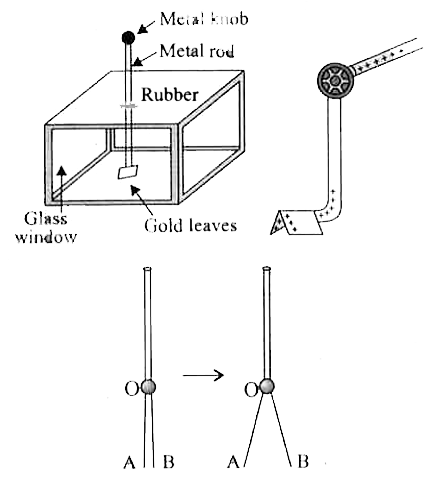
The angle of deflection in static equilibrium is an indicator of the amount of charge on the charged boy.
When a+20C rod is touched to the knob, the deflection of leaves was 5∘, and when an identical rod of −40C is touched, the deflection was found to be 9∘. If an identical rod of +30C is touched, then the deflection may be:
View SolutionAn uncharged electroscope can tell the nature of charge on a charged body .
View Solution
Knowledge Check
Assertion : When bodies are charged through friction, there is a transfer of electric charge from one body to another, but no creation or destruction of charge.
Reason : This follows from conservation of electric charges.AIf both assertion and reason are true and reason is the correct explanation of assertion.BIf both assertion and reason are true but reason is not the correct explanation of assertion.CIf assertion is true but reason is false.DIf both assertion and reason are false.
When two isolated conductors A and B are connected by a conducting wire positive charge will flow from .
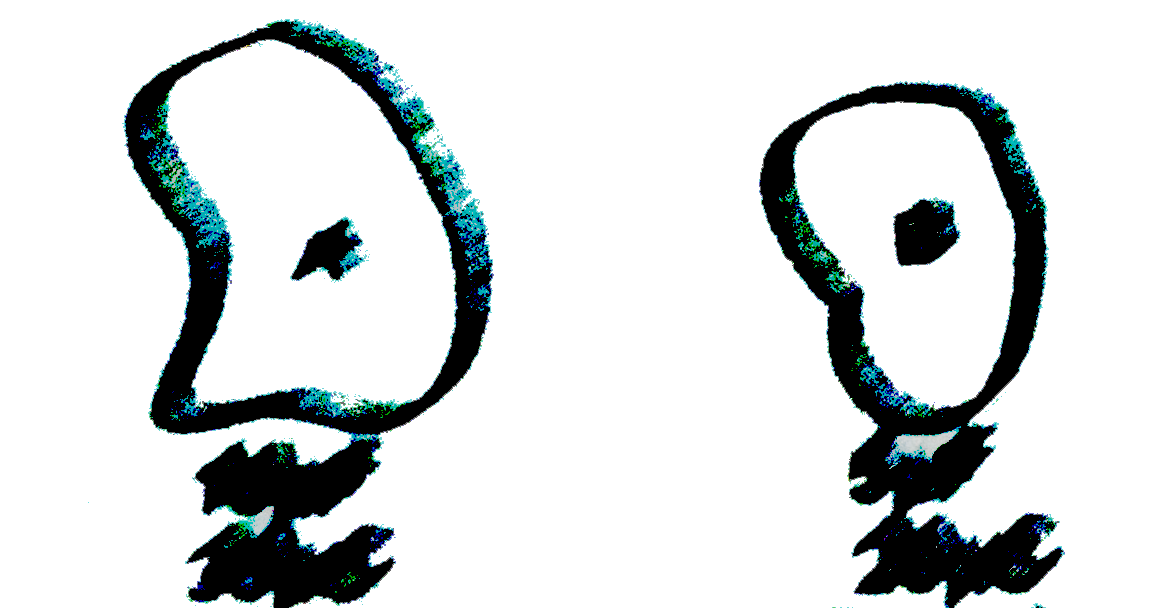
View SolutionIn Fig. C, what would be the charge on the rod and the sphere after touching. In which direction would the charges flow: from the rod to the sphere or from the sphere to the rod? Why?
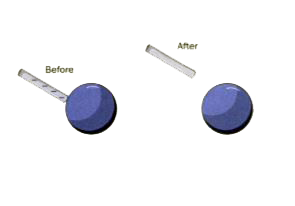
View Solutionif a charged body is brought near a charged electroscope, then
View SolutionTwo large plates are given the charges as shown in figure. Now, the left plane is earthed. Find the amount of charge that will flow from the earth to the plate.
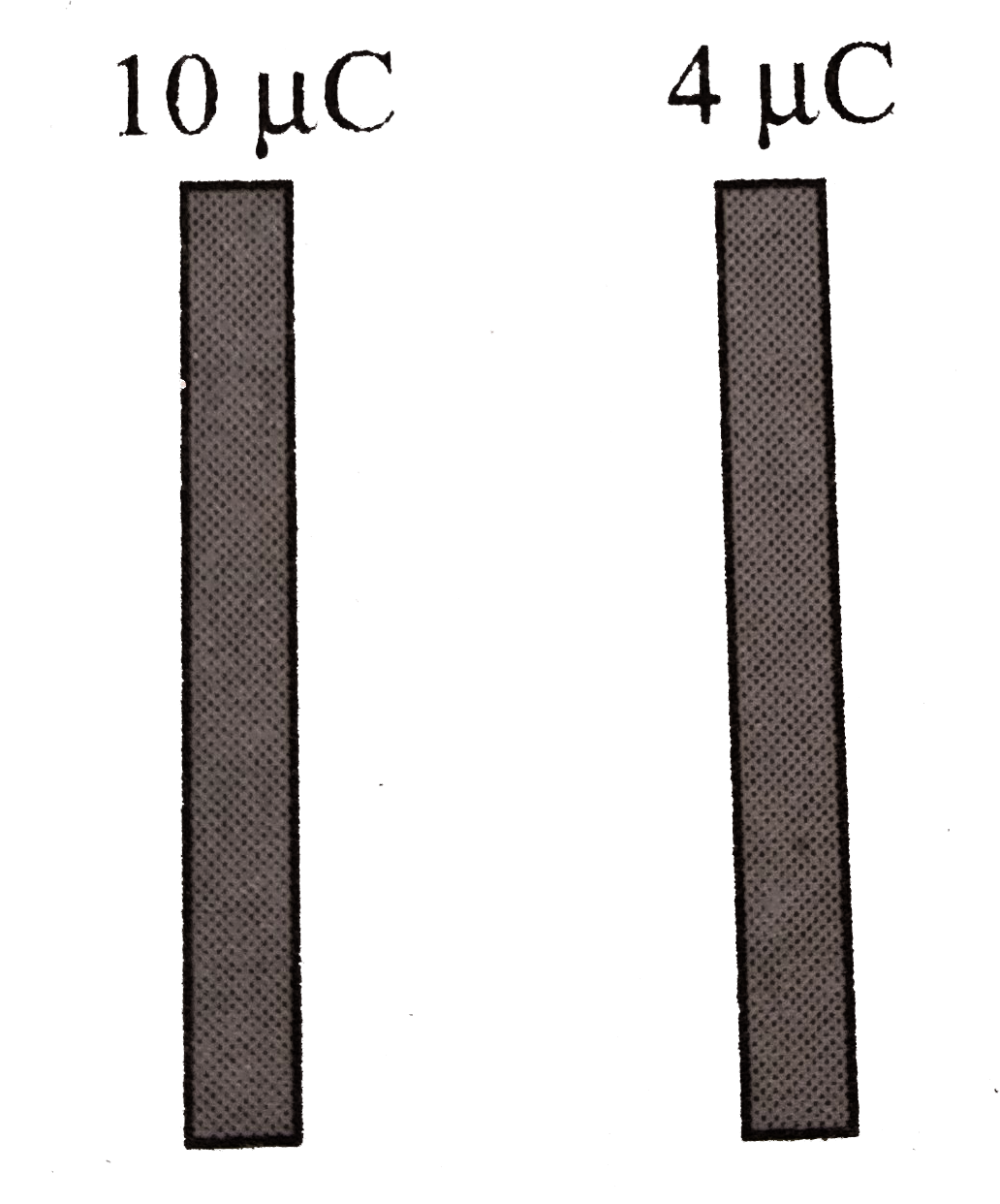
View SolutionAssertion : When two charged spheres are connected to each other by a thin conducting wire, charge flow bigger sphere to smaller sphere, if initial charges on them are same.
Reason : Electrostatic potential energy will be lost in redistribution of charges.
View SolutionIn case of electronic current the charge flows from negatively charged body to the Positively charged body. The body which is at higher potential is :
View SolutionWhen a charged metal sphere of +10 charges is connected to a neutral body, what would be the charge on both the bodies after connecting (Fig. B)? Which principle helped you to come to the reasoning? In which direction would the charges flow? a to b or b to a? Why?
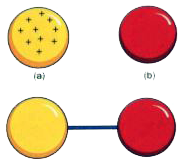
View Solution
